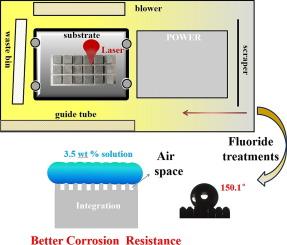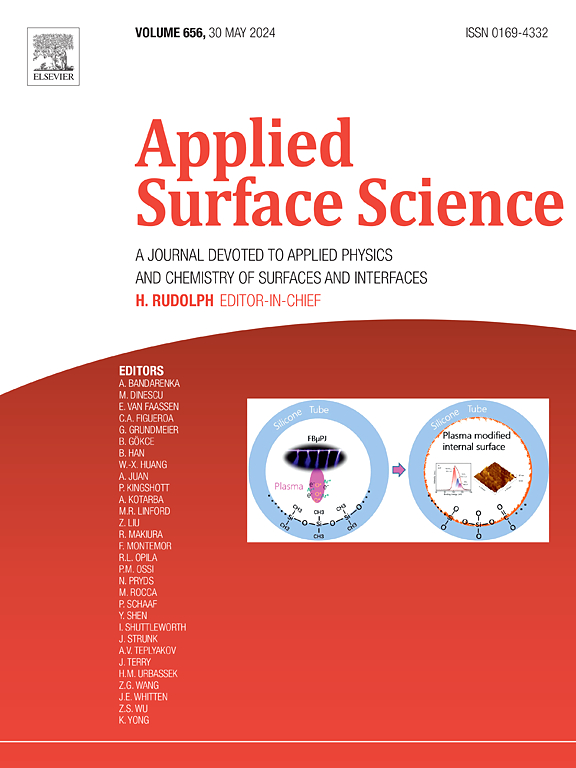Research on the preparation and corrosion resistance of integrated NiTi alloy bionic superhydrophobic corrosion-resistant surface based on additive manufacturing technology
IF 6.3
2区 材料科学
Q2 CHEMISTRY, PHYSICAL
引用次数: 0
Abstract
Wettable surfaces on metal substrates have garnered significant attention due to their critical role in aerospace and medical applications, particularly in enhancing corrosion resistance. However, achieving a transition in metal surface wettability often necessitates secondary processing of the substrate surface, which is typically limited to components with simple geometries. The direct fabrication of corrosion-resistant structures on complex component surfaces remains a considerable challenge. This paper proposes a novel method for the direct preparation of corrosion-resistant structures on intricate parts utilizing additive manufacturing technology, successfully fabricating three bionic corrosion-resistant structures. The results indicate that the bionic lotus leaf structure sample, with a height of 500 μm, exhibits the best corrosion resistance, demonstrating an order of magnitude improvement over the original sample and achieving the highest contact angle value of 150.1°. Notably, the bionic lotus leaf structure (Icorr = 9.8 ± 0.8 × 10−8 A/cm2) outperforms both the bionic cicada wing structure (Icorr = 1.2 ± 0.7 × 10-6 A/cm2) and the bionic shark skin structure (Icorr = 1.7 ± 0.7 × 10−7 A/cm2) in terms of corrosion resistance.

基于增材制造技术的集成镍钛合金仿生超疏水耐腐蚀表面的制备与耐腐蚀性研究
金属基底的可润湿表面在航空航天和医疗应用中发挥着至关重要的作用,尤其是在增强耐腐蚀性方面,因此备受关注。然而,要实现金属表面润湿性的转变,往往需要对基材表面进行二次加工,而这通常仅限于几何形状简单的部件。在复杂的部件表面直接制造耐腐蚀结构仍然是一个相当大的挑战。本文提出了一种利用增材制造技术在复杂部件上直接制备耐腐蚀结构的新方法,成功制造出三种仿生耐腐蚀结构。结果表明,高度为 500 μm 的仿生荷叶结构样品的耐腐蚀性能最好,比原始样品提高了一个数量级,接触角最高,达到 150.1°。值得注意的是,仿生荷叶结构(Icorr = 9.8 ± 0.8 × 10-8 A/cm2)的耐腐蚀性优于仿生蝉翼结构(Icorr = 1.2 ± 0.7 × 10-6 A/cm2)和仿生鲨鱼皮结构(Icorr = 1.7 ± 0.7 × 10-7 A/cm2)。
本文章由计算机程序翻译,如有差异,请以英文原文为准。
求助全文
约1分钟内获得全文
求助全文
来源期刊

Applied Surface Science
工程技术-材料科学:膜
CiteScore
12.50
自引率
7.50%
发文量
3393
审稿时长
67 days
期刊介绍:
Applied Surface Science covers topics contributing to a better understanding of surfaces, interfaces, nanostructures and their applications. The journal is concerned with scientific research on the atomic and molecular level of material properties determined with specific surface analytical techniques and/or computational methods, as well as the processing of such structures.
 求助内容:
求助内容: 应助结果提醒方式:
应助结果提醒方式:


